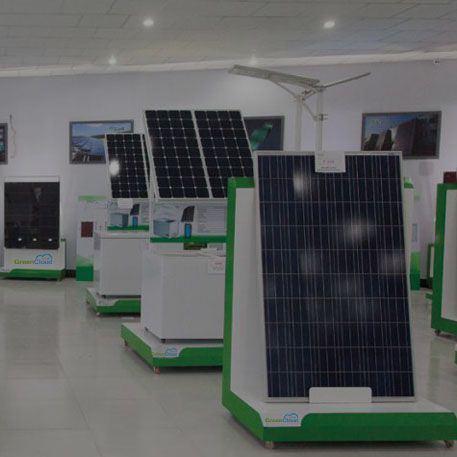The solar inverter is the unsung hero of any residential solar power system, converting the raw DC electricity generated by solar panels into usable AC power for your home. As solar technology continues to advance rapidly, 2025 brings a new generation of inverters that are more efficient, smarter, and more resilient than ever. Choosing the right inverter is crucial for maximizing your home’s energy production and ensuring long-term reliability. This article highlights the “Top Solar Inverters for Residential Systems in 2025,” outlining their key features and what homeowners should consider for an optimal solar investment.
The Evolving Role of Residential Solar Inverters
In 2025, residential solar inverters are no longer just simple DC-to-AC converters. They are intelligent energy management hubs, capable of:
- Maximizing Energy Harvest: Advanced Maximum Power Point Tracking (MPPT) ensures panels operate at their peak efficiency, even under varying conditions.
- Seamless Grid Integration: Precisely synchronizing with the utility grid for smooth power flow and net metering.
- Enhanced Monitoring: Providing real-time data on energy production, consumption, and system health via user-friendly apps.
- Battery Compatibility: Increasingly designed to integrate with battery storage systems, offering energy independence and backup power.
- Smart Home Integration: Future trends point towards seamless connectivity with smart home devices for optimized energy usage.
Key Features to Look for in Residential Solar Inverters in 2025
When selecting a solar inverter for your home, consider these essential features:
- Efficiency Rating: Look for inverters with high conversion efficiency (typically 97% or higher). Higher efficiency means less energy is lost during conversion, maximizing the usable electricity for your home.
- Type of Inverter:
- String Inverters: Cost-effective for homes with unshaded roofs where all panels face the same direction. One central inverter handles multiple panels.
- Microinverters: Ideal for roofs with complex layouts, partial shading, or future expansion plans. Each panel has its own inverter, optimizing individual panel performance.
- Hybrid Inverters: Essential for homes planning to integrate battery storage. They manage power flow between panels, batteries, and the grid, often providing backup power during outages.
- Monitoring Capabilities: A robust monitoring system, usually accessible via a mobile app, allows you to track your system’s performance, identify potential issues, and manage your energy consumption.
- Warranty and Reliability: Choose brands with strong warranties (typically 5-10 years for string inverters, 10-25 years for microinverters) and a reputation for reliability and excellent customer support.
- Scalability: If you anticipate expanding your solar system in the future (e.g., adding more panels or a battery), ensure the inverter can accommodate this growth.
- Safety Features: Look for features like rapid shutdown capabilities, surge protection, and anti-islanding technology to ensure the safety of your system and utility workers.
Top Solar Inverter Brands for Residential Systems in 2025
Based on industry reputation, technological innovation, efficiency, and market presence, several brands consistently rank among the top choices for residential solar inverters in 2025:
- SolarEdge: Often considered a top performer, especially with their power optimizers paired with a central inverter. They offer high efficiency, panel-level optimization, and excellent monitoring. Their Home Wave Inverter is highly rated.
- Pros: Maximized energy harvest, detailed monitoring, good for shaded roofs.
- Cons: Can be pricier than traditional string inverter setups.
- Enphase: A leader in microinverter technology. Their IQ8 series microinverters are highly efficient and allow each panel to operate independently, preventing shading on one panel from affecting others. They also offer grid-agnostic capabilities for backup power without a battery (with additional equipment).
- Pros: Excellent for complex or shaded roofs, high resilience, individual panel monitoring, long warranties.
- Cons: Higher upfront cost per panel.
- SMA: A long-standing German brand known for its reliability and high-quality string inverters. Their Sunny Boy series is a popular choice for residential systems, offering good efficiency and integrated Wi-Fi monitoring.
- Pros: Proven reliability, robust performance, good for unshaded arrays.
- Cons: Less effective in heavily shaded scenarios compared to MLPE solutions.
- Fronius: An Austrian brand also highly regarded for its reliable string inverters. Their GEN24 Plus series offers hybrid capabilities, making them battery-ready and versatile for future-proofing.
- Pros: High efficiency, active cooling for durability, hybrid options, good support.
- Cons: Can be on the higher end of the price spectrum.
- Growatt: Gaining popularity for offering good performance at a competitive price, particularly with their hybrid inverter solutions. They provide a range of sizes suitable for residential applications.
- Pros: Cost-effective hybrid options, dual MPPT, suitable for battery integration.
- Cons: User interface/app might be less refined than some premium brands.
- Huawei: Leveraging its telecommunications expertise, Huawei offers smart inverters with AI-driven energy management. Their single-phase hybrid inverters are known for efficiency and smart home integration.
- Pros: High efficiency, AI-powered optimization, smart home ready.
- Cons: Newer to the residential market in some regions, app user-friendliness can vary.
Conclusion
Choosing the right solar inverter for your residential system in 2025 is a crucial decision that impacts your home’s energy efficiency, reliability, and long-term savings. By understanding the different types of inverters and prioritizing features like efficiency, monitoring capabilities, warranty, and compatibility with future energy storage, homeowners can select a top-tier inverter that perfectly complements their solar panels and powers their home efficiently for decades to come. Consulting with a reputable solar installer will provide personalized recommendations based on your specific energy needs and roof characteristics.

